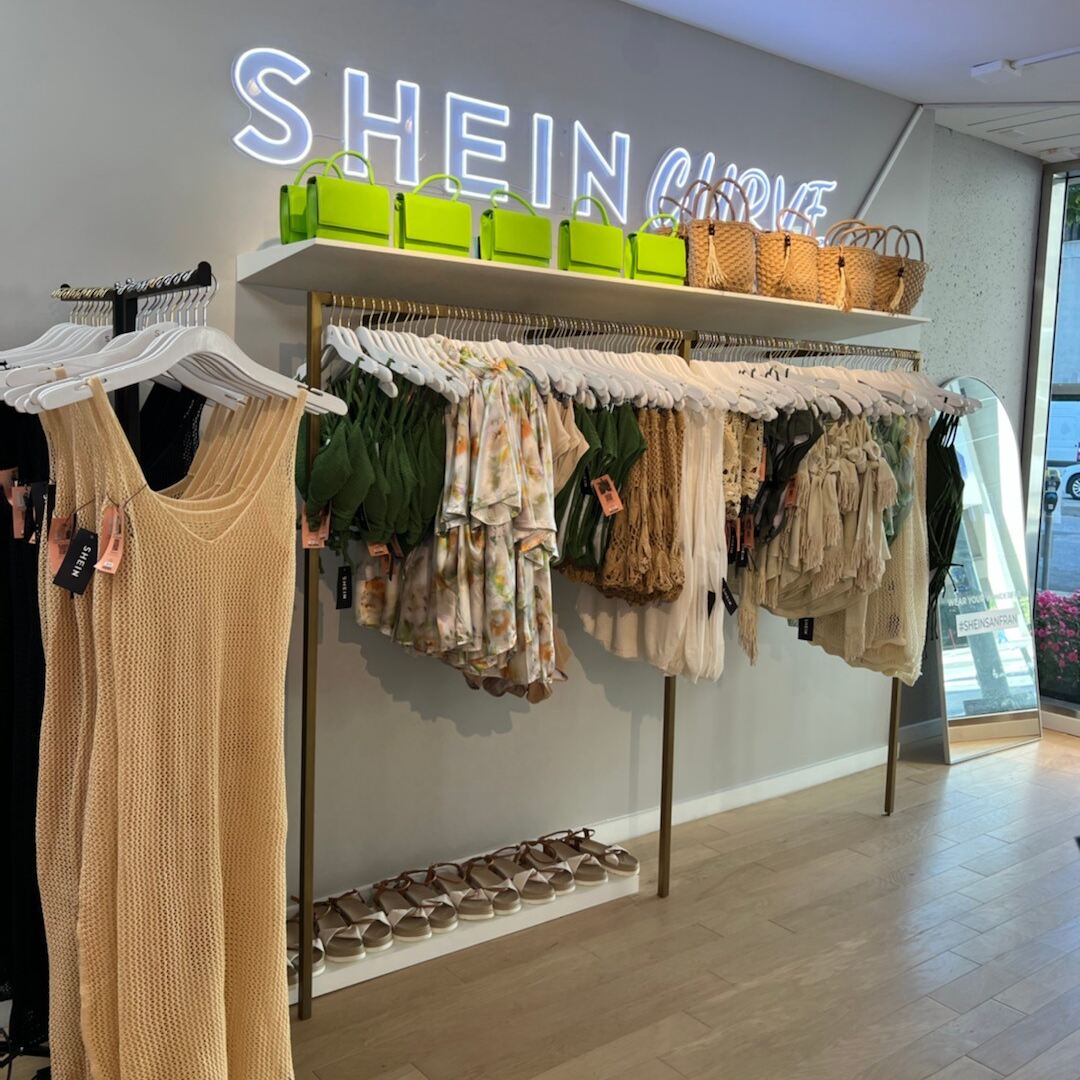What is Shein and How Does it Work?
Shein is a popular online fashion retailer that has gained significant attention in recent years due to its extremely low prices and vast selection of trendy clothing and accessories. The company was founded in 2008 and is headquartered in Nanjing, China. Shein’s business model is based on a direct-to-consumer approach, which allows it to cut out intermediaries and offer products at significantly lower prices than traditional retailers.
Shein’s website and mobile app allow customers to browse and purchase products from the comfort of their own homes. The company offers a wide range of products, including women’s and men’s clothing, shoes, accessories, and beauty products. Shein’s product offerings are designed to be fashionable and affordable, with prices starting from as low as $5.
Despite its popularity, Shein has faced concerns about its legitimacy and authenticity. Many customers have raised questions about the quality of its products, the accuracy of its sizing charts, and the transparency of its manufacturing processes. Some have even wondered, “Is Shein a real store?” or “Is Shein legitimate?” These concerns have led to a significant amount of debate and discussion online, with some customers swearing by the brand and others warning others to avoid it.
Shein’s rise to popularity can be attributed to its effective use of social media and influencer marketing. The company has partnered with numerous social media influencers and bloggers to promote its products and reach a wider audience. This strategy has helped Shein to build a large following and increase its brand awareness.
However, Shein’s rapid growth and popularity have also raised concerns about its ability to maintain quality control and ensure that its products meet customer expectations. Some customers have reported receiving low-quality products or experiencing difficulties with returns and refunds. These concerns have led to a significant amount of negative feedback and criticism online.
As a result, it is essential to approach Shein with a critical eye and carefully evaluate its products and services before making a purchase. In the following sections, we will delve deeper into the concerns surrounding Shein’s authenticity and provide tips on how to verify a website’s legitimacy.
Red Flags: Common Concerns About Shein’s Authenticity
Despite its popularity, Shein has raised several red flags that have led to concerns about its authenticity. One of the most significant concerns is its extremely low prices. While affordable prices can be attractive to customers, they can also be a sign of low-quality products or even counterfeiting. Many customers have wondered, “Is Shein a real store?” or “How can they offer such low prices?”
Another concern is the poor customer reviews that Shein has received. Many customers have reported receiving low-quality products, experiencing difficulties with returns and refunds, and encountering poor customer service. These negative reviews have raised concerns about Shein’s ability to deliver on its promises and provide a satisfactory customer experience.
Shein’s lack of transparency about its manufacturing processes is also a concern. The company does not provide clear information about its suppliers, manufacturers, or quality control processes. This lack of transparency can make it difficult for customers to trust the company and its products.
Additionally, Shein’s website and social media presence have raised concerns about its authenticity. The company’s website is not very informative, and its social media presence is largely focused on promoting its products rather than engaging with customers. This lack of engagement and transparency can make it difficult for customers to trust the company and its products.
Some customers have also reported receiving products that are different from what they ordered. This can be a sign of a larger problem with Shein’s quality control processes or even counterfeiting. These concerns have led to a significant amount of debate and discussion online, with some customers warning others to avoid the company.
It is essential to be aware of these red flags when considering shopping on Shein. While the company may offer affordable prices, it is crucial to prioritize quality and authenticity when making a purchase. In the next section, we will provide a step-by-step guide on how to verify a website’s legitimacy and ensure a safe and satisfactory shopping experience.
How to Verify a Website’s Legitimacy: A Step-by-Step Guide
When shopping online, it’s essential to verify a website’s legitimacy to ensure a safe and satisfactory experience. Here’s a step-by-step guide to help you verify a website’s legitimacy:
Step 1: Check for Trust Badges
Look for trust badges such as SSL certificates, trust seals, and security badges. These badges indicate that the website has taken steps to ensure a secure connection and protect customer data.
Step 2: Read Reviews
Read reviews from various sources, including Trustpilot, Sitejabber, and Resellerrating. Pay attention to the overall rating and read the comments to get an idea of the customers’ experiences.
Step 3: Research the Company’s Physical Address and Contact Information
Check if the company has a physical address and contact information listed on their website. A legitimate company should have a physical presence and be transparent about their contact information.
Step 4: Check for a Clear Return and Refund Policy
A legitimate company should have a clear return and refund policy. Check if the website has a comprehensive return and refund policy that outlines the process for initiating returns and refunds.
Step 5: Verify the Website’s Social Media Presence
Check if the company has a social media presence and if they engage with their customers. A legitimate company should have a social media presence and be responsive to customer inquiries.
By following these steps, you can verify a website’s legitimacy and ensure a safe and satisfactory shopping experience. When considering shopping on Shein, it’s essential to keep these steps in mind to ensure that you’re dealing with a legitimate online retailer.
Remember, if a website seems too good to be true, it probably is. Be cautious of extremely low prices, poor customer reviews, and lack of transparency about the company’s manufacturing processes. By being vigilant and doing your research, you can avoid potential pitfalls and ensure a positive shopping experience.
Shein’s Physical Presence: Do They Have Real Stores?
Shein is an online-only retailer, which means that it does not have any physical stores. However, the company does have a number of warehouses and distribution centers located around the world. These facilities are used to store and ship products to customers, and they play a critical role in Shein’s business model.
Shein’s lack of physical stores is not uncommon in the e-commerce industry. Many online retailers, including Amazon and ASOS, do not have physical stores and instead rely on warehouses and distribution centers to fulfill customer orders. However, Shein’s lack of transparency about its physical presence has raised concerns among some customers.
Some customers have reported difficulty in finding information about Shein’s warehouses and distribution centers, which has led to concerns about the company’s ability to fulfill orders and provide customer support. Additionally, the lack of physical stores has made it difficult for customers to return or exchange products, which has led to frustration and negative reviews.
Despite these concerns, Shein’s business model is designed to be efficient and cost-effective. By not having physical stores, the company is able to save on rent and other overhead costs, which allows it to offer lower prices to customers. Additionally, Shein’s use of warehouses and distribution centers allows it to quickly and efficiently fulfill customer orders, which has helped to build trust and loyalty among its customer base.
However, the question remains: is Shein a real store? While the company does not have physical stores, it does have a significant online presence and a large customer base. Additionally, Shein’s use of warehouses and distribution centers suggests that it is a legitimate business with a physical presence, even if it is not a traditional retail store.
Ultimately, the answer to this question will depend on how one defines a “real store.” If a real store is defined as a physical location where customers can browse and purchase products, then Shein is not a real store. However, if a real store is defined as a legitimate business with a physical presence and a commitment to customer satisfaction, then Shein may be considered a real store.
Product Quality and Authenticity: What to Expect from Shein
Shein’s product quality and authenticity have been a subject of concern for many customers. While the company offers a wide range of trendy and affordable products, some customers have reported receiving low-quality or counterfeit items.
One of the main concerns is the lack of transparency about Shein’s manufacturing processes. The company does not provide clear information about its suppliers or manufacturers, which makes it difficult to determine the quality and authenticity of its products.
Additionally, some customers have reported receiving products that are different from what they ordered. This can be a sign of a larger problem with Shein’s quality control processes or even counterfeiting.
Counterfeiting is a significant concern for online retailers, and Shein is no exception. The company has faced allegations of selling counterfeit products, which can be a serious issue for customers who are looking for authentic products.
Intellectual property infringement is another concern for Shein. The company has faced allegations of infringing on the intellectual property rights of other companies, which can be a serious issue for customers who are looking for authentic products.
Despite these concerns, Shein has taken steps to improve its product quality and authenticity. The company has implemented a quality control process that includes inspecting products before they are shipped to customers.
However, more needs to be done to address the concerns about product quality and authenticity. Shein needs to be more transparent about its manufacturing processes and suppliers, and it needs to take steps to prevent counterfeiting and intellectual property infringement.
Ultimately, the question of whether Shein is a real store worth shopping at depends on the individual customer’s experience. While some customers have reported positive experiences with Shein, others have reported negative experiences.
As with any online retailer, it’s essential to do your research and read reviews from other customers before making a purchase. This can help you get a sense of the company’s product quality and authenticity, and it can help you make an informed decision about whether or not to shop with Shein.
Customer Reviews: What Do Real Customers Say About Shein?
Customer reviews are an essential aspect of evaluating an online retailer’s legitimacy and quality. Shein has received a significant number of reviews from various sources, including Trustpilot, Sitejabber, and Resellerrating.
On Trustpilot, Shein has an average rating of 3.5 out of 5 stars, based on over 12,000 reviews. Many customers have praised Shein’s affordable prices, trendy products, and fast shipping. However, some customers have reported issues with product quality, sizing, and customer service.
On Sitejabber, Shein has an average rating of 3.2 out of 5 stars, based on over 2,000 reviews. Some customers have reported positive experiences with Shein, citing its wide selection of products and competitive prices. However, others have reported issues with product quality, returns, and refunds.
On Resellerrating, Shein has an average rating of 3.5 out of 5 stars, based on over 1,000 reviews. Many customers have praised Shein’s fast shipping and affordable prices. However, some customers have reported issues with product quality, sizing, and customer service.
Common themes and concerns raised by customers include:
Product quality: Many customers have reported issues with product quality, including poor materials, sizing issues, and defective products.
Customer service: Some customers have reported difficulties in contacting Shein’s customer service team, including long response times and unhelpful representatives.
Returns and refunds: Some customers have reported issues with returning products and receiving refunds, including difficulties in initiating the return process and delayed refunds.
Despite these concerns, many customers have reported positive experiences with Shein, citing its affordable prices, trendy products, and fast shipping. However, it’s essential to approach Shein with caution and carefully evaluate its products and services before making a purchase.
Ultimately, the question of whether Shein is a real store worth shopping at depends on the individual customer’s experience. While some customers have reported positive experiences, others have reported negative experiences. It’s essential to do your research and read reviews from multiple sources before making a purchase.
Shein’s Return and Refund Policy: What You Need to Know
When shopping online, it’s essential to understand a retailer’s return and refund policy, especially if you’re considering purchasing from a platform like Shein, which has raised concerns about its legitimacy. In this section, we’ll delve into Shein’s return and refund policy, highlighting the process, potential pitfalls, and concerns.
According to Shein’s website, they offer a 30-day return policy for most items. To initiate a return, customers must contact Shein’s customer service team within 30 days of receiving their order. The item must be in its original condition, with all tags attached, and include all original packaging and accessories.
Shein provides a return merchandise authorization (RMA) number, which must be included with the returned item. The customer is responsible for shipping the item back to Shein’s warehouse, and the cost of return shipping is not refundable. Once the returned item is received and inspected, Shein will process a refund within 7-10 business days.
However, there are some concerns and potential pitfalls to be aware of. Shein’s return policy states that items marked as “final sale” or “clearance” are not eligible for returns or refunds. Additionally, Shein reserves the right to reject any return that does not meet their criteria, which may lead to disputes and difficulties in obtaining a refund.
Another concern is the cost of return shipping, which can be substantial, especially for international customers. This may deter customers from initiating a return, even if they’re not satisfied with their purchase.
It’s also worth noting that Shein’s refund policy only applies to the original purchase price and does not include any shipping costs or taxes. This may result in customers receiving a partial refund, rather than a full refund.
When considering shopping on Shein, it’s essential to carefully review their return and refund policy to understand the potential risks and limitations. While Shein’s policy may seem reasonable, the concerns and potential pitfalls highlighted above may impact your decision to shop on the platform.
As with any online retailer, it’s crucial to weigh the pros and cons before making a purchase. If you’re unsure about Shein’s legitimacy or have concerns about their return and refund policy, it may be wise to explore alternative options or seek recommendations from trusted sources.
Conclusion: Is Shein a Real Store Worth Shopping At?
After conducting a thorough investigation into Shein’s business practices, product quality, and customer reviews, it’s clear that the platform raises several concerns about its legitimacy. While Shein may offer trendy and affordable clothing, the risks associated with shopping on the platform may outweigh the benefits.
One of the primary concerns is Shein’s lack of transparency about its manufacturing processes and supply chain. This lack of transparency raises concerns about the quality and authenticity of Shein’s products, as well as the potential for counterfeiting and intellectual property infringement.
Additionally, Shein’s extremely low prices and poor customer reviews have raised red flags about the platform’s authenticity. While Shein’s return and refund policy may seem reasonable, the potential pitfalls and concerns highlighted in this article may impact customers’ decisions to shop on the platform.
So, is Shein a real store worth shopping at? Based on the findings of this investigation, it’s recommended that customers exercise caution when considering shopping on the platform. While Shein may offer some benefits, such as affordable prices and trendy clothing, the risks associated with shopping on the platform may outweigh the benefits.
For customers who are considering shopping on Shein, it’s essential to carefully review the platform’s return and refund policy, as well as the product descriptions and reviews. It’s also crucial to research the company’s physical address and contact information to ensure that it’s a legitimate business.
Ultimately, whether or not Shein is a real store worth shopping at depends on individual preferences and priorities. However, based on the findings of this investigation, it’s clear that Shein raises several concerns about its legitimacy and authenticity. As with any online retailer, it’s essential to approach with caution and carefully weigh the pros and cons before making a purchase.
For those who are looking for alternative online retailers, it’s recommended to consider platforms that prioritize transparency, quality, and customer satisfaction. By doing so, customers can ensure a safe and satisfying shopping experience.


/cdn.vox-cdn.com/uploads/chorus_image/image/69574895/GettyImages_1233442352.0.jpg)



